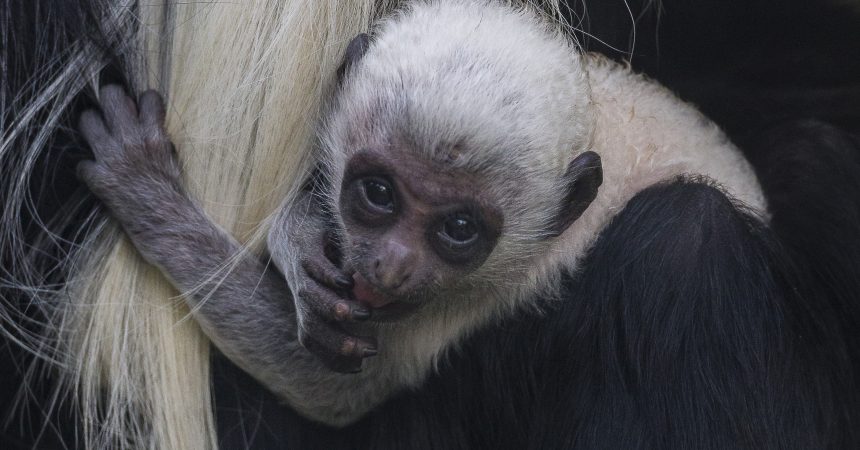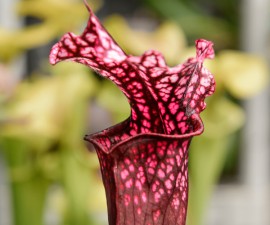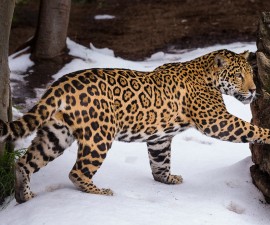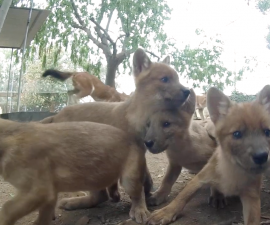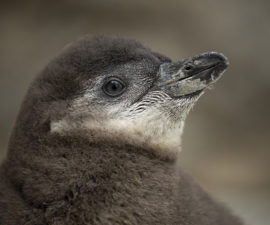Angolan Colobus Monkey Group Takes Turns Caring for New Baby Boy
The Angolan colobus monkeys at the San Diego Zoo have a new addition to their group. The large multigenerational family group, led by breeding male Milo, welcomed a cute baby boy this month—and because of a unique behavioral trait, every one of them will get a chance to help raise him. Over the next six months, the new arrival, which was born with a striking all-white coat, will be seen being carried and cared for by different members of the group.
This behavior of sharing the child-rearing responsibilities is known as alloparenting, meaning each family member participates in raising the infant—including feeding him, if one of the females is lactating. This behavior is typical for colobi, and biologists believe the babies’ striking natal all-white coloration is what allows the monkeys to easily identify their young and induces alloparenting. Animal care staff said the youngster is healthy and doing well. They added that it is amazing to watch him being handed over to each colobus monkey, as they take turns caring for him—and even his dad takes a turn holding the infant.
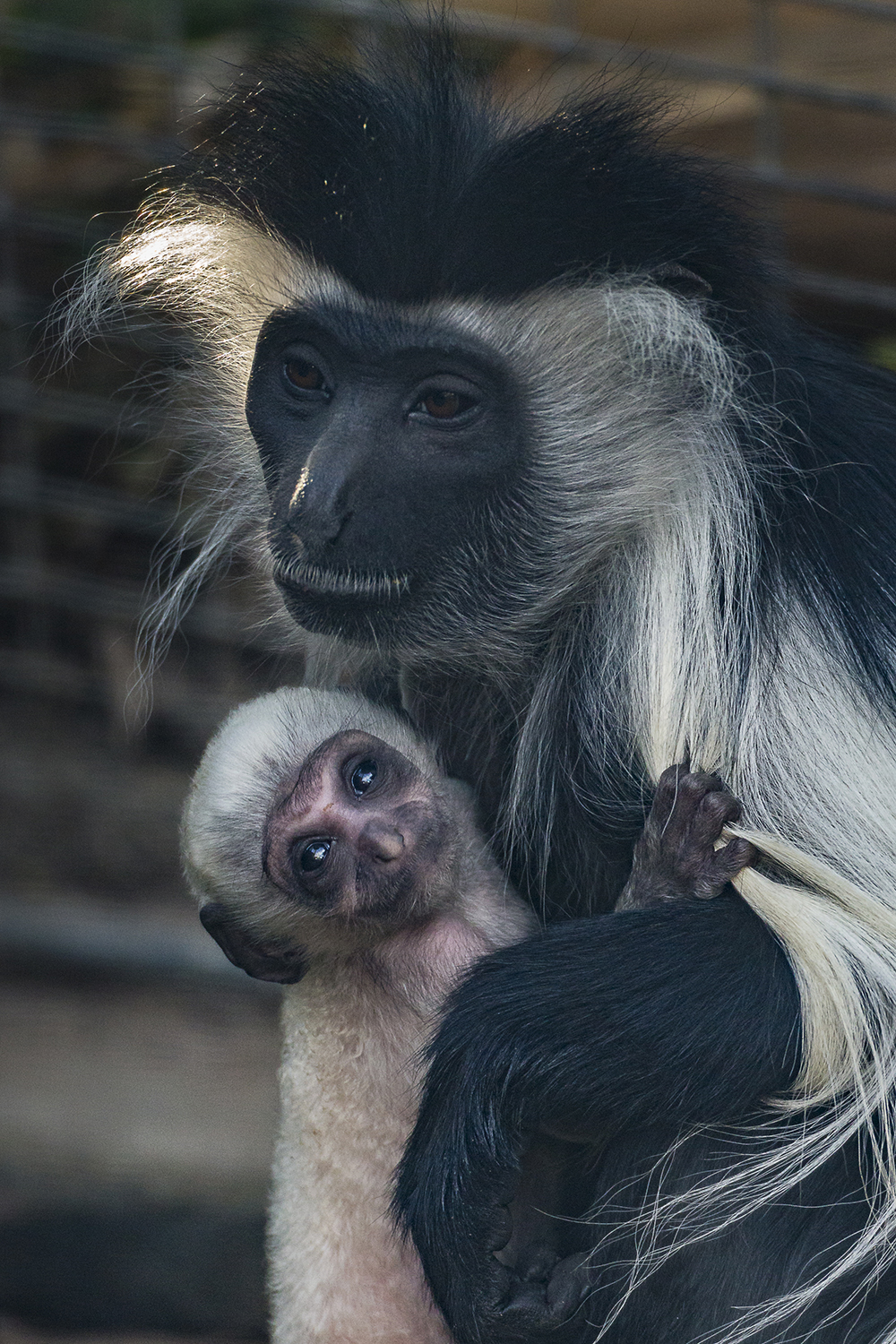
“Our breeding male, Milo, has a wonderful, calm personality,” said Jill Andrews, animal care manager for primates at the San Diego Zoo. “He has actively participated in parenting from time to time, including holding this new infant, and that is a remarkable quality!”
Within six months, the baby’s all-white coat will change to white and black, and he will more closely resemble the adults.
Angolan Colobus monkeys are a large subfamily of Old World monkeys that live large familial groups in the primary and secondary forest of central Africa. Although their population numbers are currently stable, they face threats such as hunting for the bushmeat trade, logging and habitat destruction.
San Diego Zoo guests can visit the new baby and his large family group in their habitat along Monkey Trail.

